Luck Skepticism, Nietzsche, Relativism and Other Intrigues

Interview by Richard Marshall

'What’s at stake are deep issues in epistemology and ethics. Most epistemologists think that whatever knowledge is, it can’t include getting the truth by luck. The common take on Gettier is that he showed even justified beliefs could arise by luck, which is why there has to be more to knowledge than justified true belief alone. If there is no such thing as luck, then there is no such thing as epistemic luck and we must rethink not only Gettier, but the nature of knowledge as well.'
'As far as Nietzsche’s unpublished writings go, there are three main approaches: (1) ignore them completely, (2) have a principled method for including some but not all, and (3) every scrap of paper is fair game. I endorse (2).'
'My own approach is a logical manoeuvre. If you think of perspectives or points of view as analogous to possible worlds, you can build a relativistic modal logic. The characteristic theorem of S5 logic is: the possibility that something is necessarily true strictly implies that it is necessarily true. If we accept an S5-like theorem that whatever is relatively absolute is absolute, then it will follow straightaway that it is absolutely untrue that everything is relative. So “everything is relative” turns out to be false and self-refuting, but “everything true is relatively true” is not.'
Steven D Hales works primarily in metaphysics and epistemology. Here he discusses luck skepticism, probability, modal, and control views of luck, cognitive bias, lucky necessities and skillful luck, temporal perspectives, why the illusion of luck persists, the big interpretative issues that still grip thinking about Nietzsche, the analytic/continental divide in Nietzsche studies, Nietzsche’s perspectivism, Nietzsche and logic, Nietzsche's bundle theory of the self, relativism, why without relativism we’d have to be moral skeptics, and whether virtue epistemology is a failure.

3:16: What made you become a philosopher?
Steven Hales: My father was a civil engineer in the steel business and my mother was an elementary schoolteacher who took a long break in her career to raise kids. They were both very pro-education, but neither knew anything about philosophy. I was a voracious reader as a kid, and Dad had a substantial library of literary classics that I was welcome to peruse. So I read Dickens, H.G. Wells, Jules Verne, Dante, Tolkien, Huxley, Balzac, just whatever looked half interesting on Dad’s shelves. I can remember reading Richard Bach’s Jonathan Livingston Seagull when I was in 7th grade, and having his vaguely Buddhist ideas—completely alien to my Lutheran upbringing— rock my world. Later in high school I read Ayn Rand and resonated with her enthusiasm about the importance of knowledge and the value of self-reliance. This was, of course, before I learned that right-thinking people are supposed to hate her. (In fairness, when I was in college I figured out on my own that her understanding of Kant was rather shallow). I also read Dad’s copy of Plato’s Republic. It was, I believe, the old Jowett translation, and my comprehension was pretty poor. Still, I recognized that there was something important and interesting going on there.
At the beginning of high school I thought I wanted to become a physicist. By the end of high school I realized that I didn’t have the mathematical chops to go pro any more than four years on the tennis team was going to send me to Wimbledon. I also realized that what I really loved were ideas—the weirder, more exotic, more contrarian the better. I declared a philosophy major on day one of college. I thought going to college was the greatest thing that ever happened, and my philosophy courses were the whipped cream and cherry on top of a sundae of happiness. I remember struggling to make sense of readings from Aquinas and Berkeley, but it wasn’t until I got to grad school that I realized how hard philosophy really is. I was fortunate in grad school to have brilliant, supportive teachers like Rod Chisholm, Jaegwon Kim, Martha Nussbaum, and Ernie Sosa, as well as excellent fellow grad students like John Greco, Rex Welshon, and Dean Zimmerman.
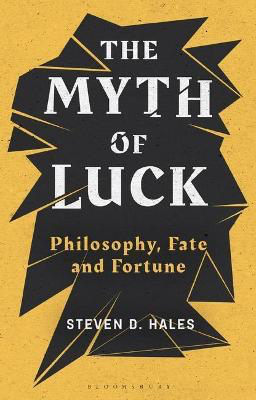
3:16: One of your interests is luck. Good luck, bad luck, fortune, whatever, you think it’s all an illusion don’t you. Is there a general, overarching argument that leads you to this conclusion - and what’s at stake?
SH: I think there is a difference between luck and fortune which is easy to see. Suppose you’re on a nice vacation in Tenerife. You might reasonably think about how fortunate you are to be in such a lovely place with good food and wine. But it’s not luck—you booked the trip and paid for the plane ticket yourself. I don’t think “fortune” is going to stand up to any heavy-duty philosophical use, but it is a harmless and anodyne concept. Luck is a different matter.
The mathematicians of the early modern period thought their development of probability theory proved that there was no such thing as luck. It’s more reasonable to conclude that what they really did was produce a theory of luck: a lucky event is something significant that happened despite its improbability. Since then philosophers have developed other theories of luck.
As far as I know, I’m the sole contemporary defender of luck skepticism. I might be wrong, but at least I’m staking out a novel view! Here’s my general, overarching argument for luck skepticism. (1) No theory of luck can be made to work. There are powerful counterexamples to all extant theories and no viable prospects of escaping them. In addition, available theories fail to perform basic tasks like separating skill from luck. (2) There is no unified theory of luck that is serviceable for both epistemic luck and moral luck. (3) The way we attribute luck to situations is shot through with cognitive biases and idiosyncratic personality traits. That would be OK if we had an acceptable theory of luck to fall back on, but we don’t. (4) We should conclude that luck is not a salvageable concept and, like medieval witches and Olympian gods, it needs to be struck from our ontology and relegated to metaphor.
What’s at stake are deep issues in epistemology and ethics. Most epistemologists think that whatever knowledge is, it can’t include getting the truth by luck. The common take on Gettier is that he showed even justified beliefs could arise by luck, which is why there has to be more to knowledge than justified true belief alone. If there is no such thing as luck, then there is no such thing as epistemic luck and we must rethink not only Gettier, but the nature of knowledge as well. Similarly, ever since the seminal articles by Nagel and Williams, the received view in ethics is that one might be blameworthy for a bad outcome even when that outcome was the result of bad luck. Moreover, the kinds of moral characters we develop might be marked down to the constitutive luck of genetics and upbringing, and the sorts of actions we perform are often due to the lucky or unlucky circumstances in which we find ourselves. Both of these features seem to lessen our responsibility for our actions. But if there is no luck, then there is no moral luck either, and we need new ways to think about moral responsibility.
3:16: For you, luck comes in three varieties - probability, modal, and control views. Can you first just set out what these problems are.
SH: The main contenders for a theory of luck are the probability theory mentioned above (lucky events are improbable), the modal theory (lucky events are modally fragile) and the control theory (lucky events are out of one’s control). Almost everyone agrees that insignificant occurrences aren’t matters of luck, so a significance condition is typically added as well. Naturally there are various modifications and hybrid views and whatnot, but those are the main taxonomic domains. My own view is that the control theory, which everyone agrees is needed for moral luck, reduces to either a probability or modal view, neither of which can work for moral luck. That’s a handy result for luck skepticism.
3:16: You think cognitive bias helps explain luck attributions don’t you? Can you explain this and what empirical experiments you’ve used to help establish this?
SH: There are two bits of psychology that help determine luck attributions. One is a framing effect: depending on how a story is told, people will see it as a matter of good luck, bad luck, or even non-luck. The second is one’s personal innate level of optimism or pessimism. In a case with both positive and negative elements, optimistic people tend to view it as primarily good luck and pessimist people interpret it as a matter of bad luck. I had only a vague notion about how to test these ideas, much less run the appropriate statistical analyses of them, so I went to Jennifer Johnson, a psychologist friend of mine, and we wrote some papers together. I think she did the hard work, and she thinks I did the hard work, so it was a good collaboration.
To evaluate the framing effect, we presented test subjects with a series of vignettes with either positive or negative framing. Here’s one with a positive frame.
Tara Cooper hit five out of six numbers in the lottery.
She was (pick one): unlucky, somewhat unlucky, somewhat lucky, lucky. Here are the same facts with a negative frame:
Tara Cooper missed one out of six numbers in the lottery.
She was (pick one): unlucky, somewhat unlucky, somewhat lucky, lucky.
When framed positively, subjects thought she was lucky, when framed negatively, they thought she was unlucky. We had a bunch of other cases too, and varied the parameters; some were long, some were short, some were near-miss cases, others were coin-toss examples, some were pure chance, others involved skillful action. The Cooper example above was short, near-miss, and pure chance. It turned out that framing swamped every other factor; it was really a robust result.
The other set of experiments we ran had to do with optimism vs. pessimism. First we gave subjects a test to determine where they fell on the optimism—pessimism continuum. Then we presented them with a series of ambiguous luck scenarios and asked whether, overall, the person in the scenario was unlucky, somewhat unlucky, somewhat lucky, or lucky. Here’s one of the vignettes we used, all of which were real-life examples.
Tsutomu Yamaguchi was a businessman working for Mitsubishi Heavy Industries when his employer sent him on a business trip to Hiroshima in the summer of 1945. His visit ended abruptly when the B-29 bomber Enola Gay dropped the Little Boy atomic bomb on 6 August, and the equivalent of 15 kilotons of TNT exploded less than two miles away. Even though Yamaguchi was inside the ‘instant death zone’, he managed to escape with only burns, temporary blindness and ruptured eardrums. He headed back home to Nagasaki and, despite his injuries, was able to report to work on 9 August. Yamaguchi’s supervisor couldn’t believe his wild story about a single bomb that instantly destroyed a city and, just as he was telling Yamaguchi that his tale was crazy talk, the room filled with an unearthly, solar-white light as the Fat Man bomb detonated over Nagasaki. Yamaguchi somehow survived that blast too, and lived until 2010, when he died at the ripe old age of 93.
Was Yamaguchi lucky or unlucky? On the one hand, he was a regular guy who was nuclear-bombed twice, which sounds about as unlucky as someone could possibly be. On the other hand, he was a survivor of the two deadliest bombs ever used in war, and still lived to old age, facts that make him seem wondrously lucky. What we found was that the more optimistic a person you are, the more you’re inclined to see Yamaguchi as lucky, but the more pessimistic you tend to be, then the more you think he was unlucky.
3:16: What are the problems of lucky necessities and skillful luck, and why do these help fortify your arguments against luck?
SH: If you think that luck involves chanciness (as fans of the probability and modal theories do), then nothing necessarily true can be a matter of luck. But people also typically think that we’re lucky that the physical constants of the universe turned out to permit life. As the fine-tuning folks point out, if those constants were even slightly different, life would be impossible. However, those constants are part of the laws of nature which are physically necessary and not chancy at all. Similarly, if constitutive luck is a real thing, then some are winners in the genetic lottery of birth and some are losers. The problem here is Kripkean— you have your parents essentially and someone with a different genetic makeup isn’t you, so the idea of a genetic lottery makes no sense. There are many other examples of necessary truths that are intuitively lucky, which of course cannot be squared with chancy luck.
The problem of skillful luck is that luck and skill are apparent contraries. If I achieve success through skillful action, then my victory wasn’t due to luck. However, there are lots of examples of success through skill that are improbable, out of one’s control, and modally fragile. For example, Joe DiMaggio’s 56-game hitting streak was probably the most unlikely thing ever to happen in sports (thus he was hugely lucky) but at the same time was the result of his tremendous skill in hitting a baseball. A professional golfer is five times as likely to hit a hole-in-one as an amateur. An ace is a mighty lucky shot, even if the pro hits it, but shouldn’t she get some credit anyway? An underdog who achieves victory by performing at the peak of his abilities (thus exhibiting great control) was still lucky to have been ‘playing in the trees’ that day. Extant luck theories fail to parse these examples.
3:16: And why can’t luck handle temporal perspectives?
SH: This is one of the first problems that occurred to me when I initially started thinking about luck. Suppose you are playing an old-fashioned mechanical slot machine. Pull the lever, and three reels spin around independently of each other, each with the same probability to land on a lemon, cherry, apple, lime, grape, watermelon, etc. The reels don’t stop all at once; the one on the furthest left stops first, then the middle reel, then the one on the right. You pull the lever. The first reel lands on a cherry. That’s not luck; you don’t care. It is irrelevant what the first symbol is. Then the second reel also stops on a cherry. You’re still not feeling too lucky, because there’s no payout for two cherries. Now you are certainly crossing your fingers for the third reel, hoping for a visit from Lady Luck. When it stops, it too lands on a cherry. Jackpot! You were very lucky that the 3rd reel came up cherry.
Told in that manner, it is perfectly sensible that the first cherry was not a matter of luck at all, the second cherry also not luck (or maybe a tiny bit lucky), but the third cherry was tremendously lucky. Viewed as an element of a diachronic series, the final cherry was lucky, since it secured the jackpot. However, the spins of the reels are independent trials and are not causally connected to each other. Furthermore, each wheel had to land on the same symbol in order to win; it was no more necessary that the 3rd reel land on cherry than it was for the first two. Given that the 3rd reel was cherry, the first two had to be as well. Viewed synchronically, no one wheel seems any luckier than any other. They all had to cooperate together to yield a payout. In short, hitting a cherry on the third reel seems both luckier than a cherry on the first two reels (viewed diachronically) and also not luckier at all (viewed synchronically).
One might argue that hitting cherry on the third reel just plain mattered more than it did for the first two reels. So even if the probability of, modal fragility of, or control over cherry on the third reel was no different from the first two, its importance was, and therefore it really was luckier for the third reel to come up cherry than it was for the first two reels. However, this rejoinder is mistaken, and in fact only highlights the problem of synchronic vs. diachronic luck. The whole idea is that considered synchronically, in isolation of its position in a temporal series, it is no more important that a cherry come up on one reel over any other. It was equally essential for the same fruit to appear on each reel to hit the jackpot. It was just as important, or unimportant, for the first or second reels to come up cherry as it was for the third. Another way to see this is that it doesn’t matter at all what fruit shows up on a reel—any reel—when the reel is considered alone, apart from anything that happened before or after. Some fruit or other is going to appear. If it is a cherry, so be it. However, what happens on the third reel does seem to matter more when it is considered diachronically, as an element of a series. Given that there were cherries on the first two reels, it is now of considerable significance that a cherry come up on the third. The fundamental phenomenon is we get different attributions of luck depending on the diachronic or synchronic perspectives, a fact that no theory of luck can explain.
3:16: We have philosophers who defend moral luck and of course you think they’re wrong and that the whole idea needs revising. You discuss this in terms of control and your conclusions are pretty disturbing aren’t they? Can you take us through your thinking on moral luck and how our thinking needs to be revised?
SH: Sure. The first thing to notice is that everyone who thinks moral luck is a real phenomenon also endorses the idea that lucky events are those that are out of one’s control. I believe this means that every lucky event, and eo ipso every instance of moral luck, is going to be on the curve below: If there are ostensible cases of moral luck that are low control and low chanciness, or high control and high chanciness, that’s bad news for moral luck fans. Those cases should be impossible. But they exist! Here’s a high control/high chanciness case. A sniper who hits a distant moving target is a one-off high performance case of outcome luck. Such a shot is very chancy; there is a low probability of success, but in that instance the shooter had a very high degree of control. It is a case of moral luck because if the kill took place during an immoral war of aggression, the sniper would be blameworthy for participating in such a cause (moral bad luck). If it was a just war of liberation, then the sniper would be praiseworthy for his action, the result of good moral luck.
Both constitutive and circumstantial luck fall into the low chanciness/low control quadrant. I noted earlier that if Kripke is right then there is zero chanciness about our genetic constitutions; they couldn’t be other than what they are. And they are clearly out of our control. Circumstantial luck is the idea that it is a matter of moral luck to be born into a peaceful first-world nation instead of a war-torn third-world country, or born at one point in history instead of another. Our environment powerfully determines our language, religion, political leanings, career path, and ultimately the kinds of people we become. The circumstances into which we are born and raised are beyond our control, even though those factors affect our blameworthiness or praiseworthiness. It doesn’t take much imagination to realize that, given our parents, there is little chanciness about where, when and in what culture we are born.
Either there is no such thing as moral luck or everyone is deeply mistaken about its nature and a radical rethinking of moral luck is needed.
3:16: When vagueness is explained to be a persistent epistemic illusion the issue then becomes why it persists: so why do you think the illusion of luck persists? It does seem a stubborn cognitive bias and as you’ve pointed out, it has a long history in many cultures?
SH: This is really a question better suited to psychologists and sociologists than a philosopher, but here’s my take. Chance is a real property of the world, and well described by probability theory. Fortune too is plausibly a real thing. Plus there are other ideas in the same neighborhood, like modal fragility and the lack of control we experience over much of our lives. I think people tend to run these ideas together in various ways and erroneously infer that there is some further property “luck” that has an explanatory role. As with many illusions, the appearance remains even when the reality has been discarded.
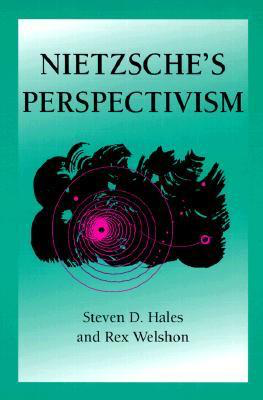
3:16: You’ve looked at recent scholarship regarding Nietzsche and the debates that continue to rage about him. So what do you think are the big interpretative issues that still grip thinking about Nietzsche – I think you think there are two types of wrangling going on don’t you - interpretive disputes over conceptual and philosophical issues on the one hand and metainterpretive wrangling over how the philosophical issues should be approached and how Nietzsche's unpublished writings ought to be considered.
SH: With any major historical figure, especially one who wrote on so many different topics and in so many different styles and voices like Nietzsche did, there’s a multiplicity of interpretive approaches. Nietzsche left a large corpus of unpublished material, and so there are disputes about how to deal with those writings as well as the usual debates about what his views actually were, whether they form a systematic body of thought, and so on.
3:16: Do issues of the analytic/continental divide still emerge in Nietzsche studies, in particular when trying to make sense of his notion of the reevaluation of values and do you think scholars should use his unpublished writings as statements of his settled beliefs?
SH: My sense is that the analytic/continental divide is closing, if not fully closed, and that’s a good thing. Analytically-trained philosophers in traditionally analytic departments are now writing on Heidegger, Sartre, and Nietzsche, and many universities on the European continent have become strong in formal epistemology, decision theory, and logic. As far as Nietzsche’s unpublished writings go, there are three main approaches: (1) ignore them completely, (2) have a principled method for including some but not all, and (3) every scrap of paper is fair game. I endorse (2). My own view is that it is reasonable to use unpublished work that coheres with and sheds light on the ideas Nietzsche saw to publication. If he just toyed with some ideas in his notebooks, but ultimately rejected them, it’s unfair to assign those ideas to Nietzsche as if they were canon. I certainly would hate it if people reached conclusions about my official views based on half-baked scribbles on my desk.
3:16: Nietzsche’s perspectivism is another of your interests. You read him as developing an epistemic perspectivism that’s two-tiered. So what’s Nietzsche’s position and in particular, how does he develop a second-order methodological perspectivism aimed at enhancing understanding, an epistemic state distinct from knowledge?
SH: Nietzsche’s remarks on perspectivism are often tantalizing and hard to parse. I think that for Nietzsche perspectivism is not one precisely defined doctrine, but a cluster of related ideas about the subjectivity of truth, anti-realist metaphysics, a bundle theory of objects, the revaluation of values and the creation of one’s own virtues, and the role of varying interpretations in knowledge. As a first-order view, knowledge is perspectival because truth itself is. This has been the (or at least a prominent) mainstream way to understand Nietzsche’s perspectivism.
I think there is another way into his perspectivist thinking, though. That is to regard perspectivism not as specific theory of knowledge, or even a collection of theories, but as a strategic methodology. The right analogy here is to Descartes’s discussion of skepticism. Descartes famously rejects first-order skepticism as a positive epistemic theory while promoting skepticism as a second-order methodology. The latter is, of course, his famous method of doubt, aimed at producing certain knowledge. Nietzsche’s methodological perspectivism is aimed at providing and enhancing understanding—of the human condition, of society, morality, religion, science, music, politics. Understanding, as distinct from knowledge, is something that comes in degrees. Furthermore, models that are technically false (because they are oversimpifications, say) can provide understanding, whereas knowledge must be true. For Nietzsche, it is through a multiplicity of different approaches and perspectives that we gain the greatest understanding.
3:16: Is Nietzsche anti-logic?
SH: No, not at all! Nietzsche did have an idiosyncratic grasp of logic and, as far as I can tell, no knowledge of the logical advances that Venn, Pierce, Mill and others made during his own lifetime. As with many of the topics he addresses, Nietzsche both criticizes and praises logic, so it takes a bit of sleuthing to figure out exactly what he is up to. My view is that Nietzsche is all in favor of correct inferential reasoning (what we might now think of as proof theory or logical syntax), but rejects any semantics that are committed to realist metaphysics. Nietzsche claims that logic is the buried structure of language and, just as logic can be misleading because of realist semantics, so too he maintains that language misleads people into accepting object realism. It’s that realism that he opposes.
3:16: Why does Nietzsche's bundle theory of the self have important implications for psychotherapy and the concept of mental health?
SH: The test for a good therapeutic approach is whether it benefits the patient, whether it enhances their life. I think that, like Hume, Parfit, and others, Nietzsche supports a bundle theory of the self. One of the key features of a bundle theory is that identity over time is largely pragmatic, in the same way that we might ask whether a football team is the same team of three years ago. In one sense yes—there are still some of the same players, the team has the same name and is based in the same town, and they still play football. In another sense no, as some of the players and coaches have been replaced. There’s no deeper metaphysical fact we can discover that will tell us that it “really” is the same team or not. We are just faced with a kind of pragmatic choice.
If the self is a complex or bundle of ever-changing desires, thoughts, beliefs, emotions, moods, hopes, fears, drives, and so forth, then the category of mental health is not fixed in time. Which drives, desires, and beliefs should be promoted and which suppressed or eradicated? It looks like therapists need to be sensitive to their patients’ own perspectival interpretation of their goals and impulses, understanding that these are not fixed throughout time. Nietzsche is fairly explicit about this sort of thing, for example in Gay Science 120. Put another way, the notion of personal flourishing is subject to change and re-evaluation, and so too should therapy aimed at nurturing it.
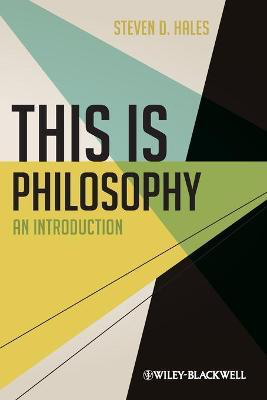
3:16: You’ve also written extensively on relativism. I always thought relativism was self refuting and so incoherent but you think it can be defended don’t you? So what’s your consistent relativism and do you think of it as a resource for solving disputes?
SH: You’re absolutely right that for a long time the self-refutation objection was thought to be the last word on global relativism. However, there have been a lot of recently proposed ways to get around the problem (I have a survey piece on this in the Routledge Handbook of Philosophy of Relativism). My own approach is a logical manoeuvre. If you think of perspectives or points of view as analogous to possible worlds, you can build a relativistic modal logic. The characteristic theorem of S5 logic is: the possibility that something is necessarily true strictly implies that it is necessarily true. If we accept an S5-like theorem that whatever is relatively absolute is absolute, then it will follow straightaway that it is absolutely untrue that everything is relative. So “everything is relative” turns out to be false and self-refuting, but “everything true is relatively true” is not. Another way to see this difference is that no one would defend “everything is possible,” but “everything true is possibly true” is completely anodyne.
Relativism is one of many available strategies to resolve disputes. The most popular approach is “keep arguing until your opponent capitulates.” Alternatively we might compromise, deciding that we’re each partly right and partly wrong. Or we could figure out that the language of our dispute is ambiguous, and once we make our concepts clear we realize that we’ve been talking past each other all along. Or we could be Pyrrhonian skeptics, and give up the fight by agreeing to disagree. Relativists resolve disagreements by declaring that everyone is a winner—relative to their own perspective, of course. When might we pick the relativist approach? I think it is most viable when we have higher-order disagreements over evidence. Two parties might disagree what the evidence about P really shows but agree as to what kind of evidence is relevant to settling the score about P. It’s when they can’t even agree about the right kind of evidence and lack any further means of making progress that relativism starts to look appealing. Relativism is motivated by irreconcilable differences, differences that arise when disputants cannot even agree on the meta-evidence for a contested proposition. In such a case they may reasonably conclude that they are both right, relative to separate perspectives.
3:16: Why do you think without relativism we’d have to be moral skeptics – and what’s it got to do with evolutionary psychology?
SH: The basic argument is this. Moral intuitions are the building blocks of moral theory. Our immediate, spontaneous judgments about specific cases of potential behavior are analogous to our immediate and spontaneous perceptual beliefs. They are the data we use to build theories about the moral and physical worlds, respectively. Moral intuitions aren’t sacrosanct, but we do our best to develop moral theories that incorporate them as best we can. Outlier intuitions get discarded.
Work done on the evolutionary origins of moral instincts helps support the view that our most fundamental ethical intuitions really are irreconcilably inconsistent. I think there are two distinct evolutionary forces that underwrite moral and proto-moral behaviors and intuitions. The first is kin selection, namely the more genetically similar organisms are, the more they are liable to help each other even at a personal cost. This idea goes back to Hume and was developed by Darwin. We instinctively help our families and friends, and feel that we ought to help them above others. These agent-relative attitudes are precisely the sort of instincts built by kin selection.
Agent-neutral intuitions are built in a different way. The application of game-theoretic models (prominently iterated multi-player simultaneous choice games) to evolutionary design shows how natural selection would plump for organisms that are motivated to make certain sacrifices to aid others, even when there is no guarantee of reciprocal help, and even when the other players are unfamiliar non-kin. Work on iterated prisoner’s dilemmas shows how cooperation can evolve. The agent-neutral vs. agent-relative distinction is a very basic division in moral theories, and the evolutionary account of our competing moral intuitions helps explain why bridging the divide seems so intractable.
John Mackie is well-known for rejecting moral realism on the basis of the plurality problem: the existence of mutually incompatible moral theories that are equally internally coherent, consistent, capable of accommodating the preanalytic data, and with component parts that are explanatorily connected. He thought that moral skepticism was the right way to go. I think moral relativism functions as an alternative answer to skepticism. Instead of there being no true morality, there is no one true morality. Unless we are ready to sign on for a Mackie-like skepticism, accepting moral relativism might be a more appealing solution.
3:16: Why is virtue epistemology a failure, why would it mean that blind peer reviews would have to be abolished if it wasn’t?
SH: Virtue epistemology is by this point a well-guarded fortress, and far be it from me to rashly declare it a failure! I do have one small worry about how it can deal with the value problem. The value problem is explaining why having knowledge is more valuable than having mere true belief. Virtue epistemologists like Sosa and Greco argue that success arising from ability is superior to accidental success. For example, a 120 mph tennis ace from Novak Djokovic is a better shot than a qualitatively identical ace from a weekend hacker (one of Sosa’s examples). Analogously, knowledge is better than mere true belief because of its causal origin in a competent actor.
Well, OK, how can we identify a competent actor? The only way is by examining their base rate of success. What’s their past performance? How successful have they previously at achieving their aim? We’ll have to ask these questions whether we’re talking about tennis success or gaining knowledge. The problem is that just as a Djokovic ace is qualitatively superior to the same shot from an amateur, a philosophy article is more valuable when written by one of the certified geniuses in the profession than when it is written by a rookie. If you don’t know the overall competence or general ability of an actor to perform a type of action (like writing philosophy articles), then it is impossible to evaluate adequately any particular performance of that type (like any specific article). Thus a referee can't judge an article—a kind of performance—without knowing the general competence of the author. So much for blind review; a paper’s quality could not be properly assessed without the author’s CV on hand. If you’re inclined to think that only the intrinsic properties of the article matter for its value and extrinsic properties like its causal origin and authorship are irrelevant, then why not apply that reasoning to knowledge as well? The upshot is that virtue epistemology hasn’t solved the value problem.
3:16: Are there five books that you can recommend other than your own that will take us further into your philosophical world?
SH: 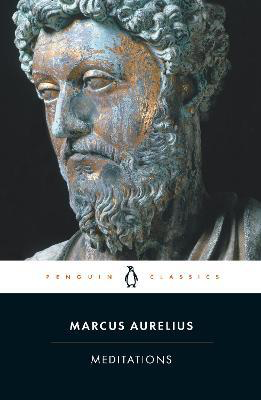
Marcus Aurelius, Meditations. A personal and heartfelt reminder that the deep problems of how we should live and how we should die are ancient ones.

Friedrich Nietzsche, Beyond Good and Evil. Filled with aphorisms, poetry, iconoclasm, and linguistic fireworks. A joy to read with subtleties that repay close attention. 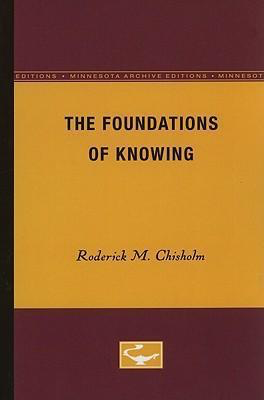
Roderick Chisholm, The Foundations of Knowing. Chisholm was my dissertation director, and this book contains his classic defense of internalist foundationalism and his presentation of the problem of the criterion. A seminal influence on how I understand epistemology.
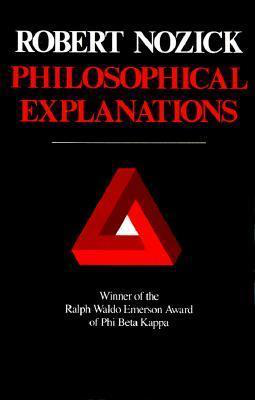
Robert Nozick, Philosophical Explanations. We should all aspire to learned, broad, and original thought. Nozick exhibited those traits in spades.
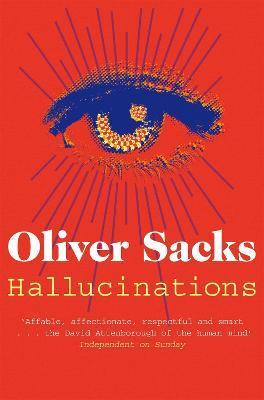
Oliver Sacks, Hallucinations. I could recommend any of Sacks’s books, as they are all fascinating and brilliantly written. I’m a big believer in reading widely and outside of philosophy proper.
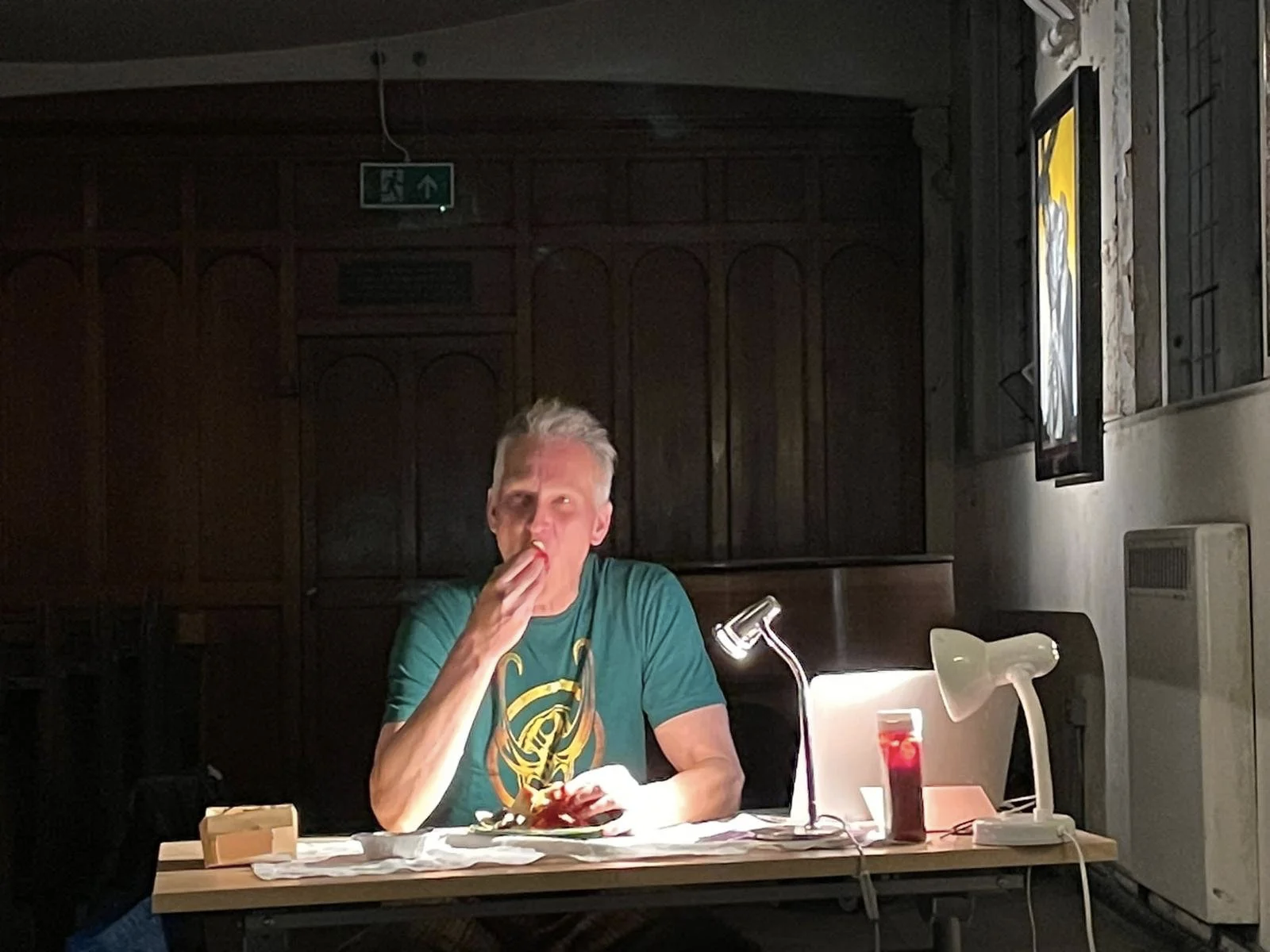
ABOUT THE INTERVIEWER
Richard Marshall is biding his time.
Buy his second book here or his first book here to keep him biding!
End Time series: the themes
Huw Price's Flickering Shadows series.
Steven DeLay's Finding meaning series
Josef Mitterer's The Beyond of Philosophy serialised
NEW: Art from 3:16am Exhibition - details here